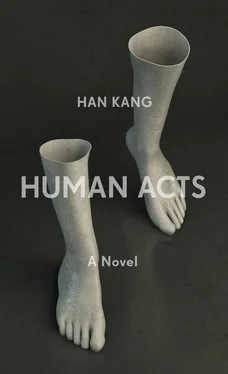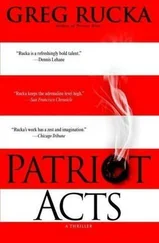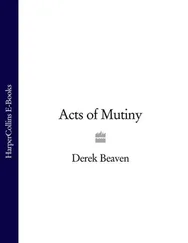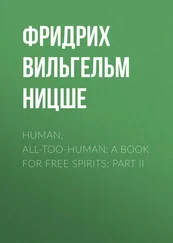Han Kang - Human Acts
Здесь есть возможность читать онлайн «Han Kang - Human Acts» весь текст электронной книги совершенно бесплатно (целиком полную версию без сокращений). В некоторых случаях можно слушать аудио, скачать через торрент в формате fb2 и присутствует краткое содержание. Год выпуска: 2016, Издательство: Portobello Books, Жанр: Современная проза, на английском языке. Описание произведения, (предисловие) а так же отзывы посетителей доступны на портале библиотеки ЛибКат.
- Название:Human Acts
- Автор:
- Издательство:Portobello Books
- Жанр:
- Год:2016
- ISBN:нет данных
- Рейтинг книги:4 / 5. Голосов: 1
-
Избранное:Добавить в избранное
- Отзывы:
-
Ваша оценка:
- 80
- 1
- 2
- 3
- 4
- 5
Human Acts: краткое содержание, описание и аннотация
Предлагаем к чтению аннотацию, описание, краткое содержание или предисловие (зависит от того, что написал сам автор книги «Human Acts»). Если вы не нашли необходимую информацию о книге — напишите в комментариях, мы постараемся отыскать её.
Human Acts
Human Acts — читать онлайн бесплатно полную книгу (весь текст) целиком
Ниже представлен текст книги, разбитый по страницам. Система сохранения места последней прочитанной страницы, позволяет с удобством читать онлайн бесплатно книгу «Human Acts», без необходимости каждый раз заново искать на чём Вы остановились. Поставьте закладку, и сможете в любой момент перейти на страницу, на которой закончили чтение.
Интервал:
Закладка:
You sense that the cheers and applause that follow are coming from a much smaller number of people than before. You remember the assembly that was convened the day after the soldiers withdrew. Then, there were so many people that the overflow had to crowd up onto the roof of the Provincial Office and the clock tower. The streets were laid out like a paduk board, with no vehicles permitted entry, and the only available space had already been taken up by the buildings. A great mass of people, over a hundred thousand strong, surged through those streets with the rippling motion of colossal waves. Their voices joined together for the national anthem, the swelling chorus rising up like a tower, a storey for every voice. The sound of their clapping was like thousands of fireworks being let off in succession. Yesterday morning, you listened to Jin-su and Seon-ju discussing what was going to happen. Looking serious, Jin-su had said that there was a rumour going around that when the soldiers came back those who were gathering in the streets would all be killed, and so the demonstration was being hastily scaled down. ‘We need there to be more of us, not less, if we’re to prevent the army from re-entering the city … the mood’s not good. Every day there are more coffins; people are starting to think twice about venturing out of doors.’
‘Hasn’t enough blood been shed? How can all that blood be simply covered up? The souls of the departed are watching us. Their eyes are wide open.’
The voice of the man conducting the ceremony cracks at the end. The repetition of that word, ‘blood’, gives you a tightening feeling in your chest, so you open your mouth wide and suck in another deep breath.
A soul doesn’t have a body, so how can it be watching us?
You recall your maternal grandmother’s death last winter. What started out as a mild cold soon turned into pneumonia, and she was admitted to hospital. She’d been there around a fortnight when you and your mother went to visit her, one Saturday afternoon when you were basking in the relief of having got through the end-of-term exams. But then, without warning, your grandmother’s condition deteriorated. Your mother contacted her brother and told him to come as quickly as possible, but he was still stuck in traffic when the old woman breathed her last.
Your childhood visits to her home inevitably included a quiet ‘follow me’ as the elderly woman, her back bent into the shape of the letter ㄱ, led the way to the dark room that was used as a pantry. Then, you knew, she would open the larder door and bring out the cakes that were stored there to use as ceremonial offerings on the anniversary of a relative’s death: pastries made from oil and honey, and block-shaped cakes of pounded glutinous rice. You would take an oil-and-honey pastry with a conspiratorial grin, and your grandmother would smile back at you, her eyes creasing into slits. Her death was every bit as quiet and understated as she herself had been. Something seemed to flutter up from her face, like a bird escaping from her shuttered eyes above the oxygen mask. You stood there gaping at her wrinkled face, suddenly that of a corpse, and wondered where that fluttering, winged thing had disappeared to.
What about those who are now in the gym hall — have their souls also escaped their bodies, flying away like birds? Where could they possibly be going? It surely wasn’t some alien place like heaven or hell, which you’d heard about the one time you ever went to Sunday school, when you and your friends were lured there by the prospect of chocolate Easter eggs. You’d never been convinced by the historical dramas on TV, where the spirits of the dead were supposed to be scary figures, dressed all in white and wandering around in an eerie fog, their dishevelled hair the sign of an unquiet rest.
You feel drops of rain pattering down on your head. As you look up, the raindrops splash against your cheeks and forehead. Seemingly in an instant, the individual drops meld and blur into thick streaks, pouring down with ferocious speed.
The man with the microphone shouts out, ‘Please sit down, all of you. The memorial service hasn’t finished yet. This rain is tears shed by the souls of the departed.’
The chilly rainwater, which has crept inside the collar of your uniform, soaks your vest as it trickles down your back. The tears of souls are cold, all right . Goosebumps rise on your forearms, on your back, as you hurry to shelter under the eaves projecting over the main door. The trees in front of the Provincial Office are being lashed by the rain. Squatting down on the highest step, the one closest to the door, you think back to your biology lessons. Studying the respiration of plants during fifth period, when the sunlight was always on the wane, seems like something that took place in another world, now. Trees, you were told, survive on a single breath per day. When the sun rises, they drink in a long, luxurious draught of its rays, and when it sets they exhale a great stream of carbon dioxide. Those trees over there, who hold those long breaths within themselves with such unwavering patience, are bending under the onslaught of the rain.
Had that other world continued, you would have sat your mid-terms last week. Today being Sunday, and with no more exams to revise for, you would have slept in late before going out to play badminton in the yard with Jeong-dae. The time of that other world seems no more real, now, than does the past week.
It happened last Sunday, when you’d gone out alone to buy some practice papers from the bookshop in front of the school. Frightened by the sight of armed soldiers, who seemed to have materialised out of nowhere, you took a side alley leading down to the riverside. A couple were walking opposite you, the man wearing a suit and holding a Bible and hymn book, and the woman in a navy-blue dress. Something about the way they were talking made you think they must be newly-weds. A thin scream rang out several times from the top of the road, and three soldiers carrying guns and clubs raced down over the hilltop, surrounding the young couple. They looked to have been pursuing someone, and to have turned down this alley by mistake.
‘What’s the matter? We’re just on our way to church …’
Before the man in the suit had finished speaking, you saw a person’s arm — what? Something you wouldn’t have thought it capable of. Too much to process — what you saw happen to that hand, that back, that leg. A human being. ‘Help me!’ the man shouted, his voice ragged. They kept on clubbing him until his twitching feet finally grew still. The woman stood there and screamed when she should have just backed off; you saw them grab her by the hair, but you don’t know what happened after that. You were too busy crawling, trembling, into the next street, a street where a sight even further from your experience was unfolding.
*
You jerk your head up in alarm, startled witless by the hand that just brushed your right shoulder. A slender, outstretched hand which seems wound around with cold scraps of cotton, like some fragile apparition.
‘Dong-ho.’
Eun-sook, soaked to the skin from her braids to the hems of her jeans, bends down over you and laughs.
Your face white as a sheet, you muster a half-hearted chuckle in response. You dummy, what would a ghost need hands for?
‘I meant to come back earlier; sorry you got caught up in this rain … I was worried that if I left, the others would start leaving too. Has anything much happened?’
You shake your head. ‘No one came looking for anyone. No passers-by either.’
‘It was the same at the service. Not many people came.’
Eun-sook squats down next to you and pulls a sponge cake out of the pocket of her hoodie, the wrapper rustling. A yoghurt pot follows it.
Читать дальшеИнтервал:
Закладка:
Похожие книги на «Human Acts»
Представляем Вашему вниманию похожие книги на «Human Acts» списком для выбора. Мы отобрали схожую по названию и смыслу литературу в надежде предоставить читателям больше вариантов отыскать новые, интересные, ещё непрочитанные произведения.
Обсуждение, отзывы о книге «Human Acts» и просто собственные мнения читателей. Оставьте ваши комментарии, напишите, что Вы думаете о произведении, его смысле или главных героях. Укажите что конкретно понравилось, а что нет, и почему Вы так считаете.












